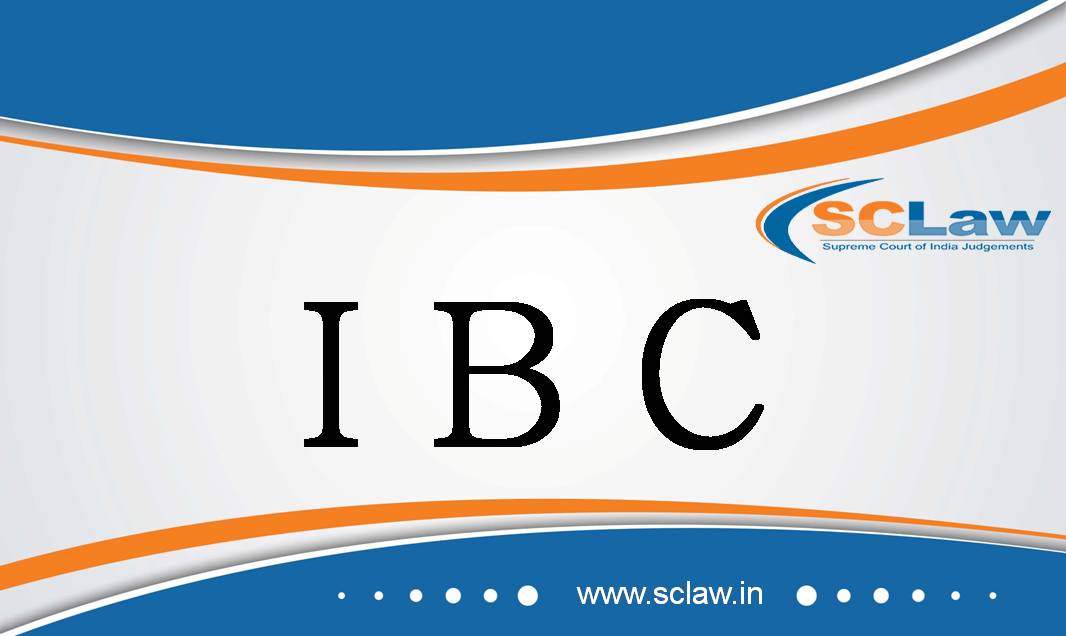Default Bail — Filing of charge-sheet is sufficient compliance with the provisions of proviso (a) to Section 167(2), CrPC and that taking of cognizance is not material to Section 167.
SUPREME COURT OF INDIA DIVISION BENCH SERIOUS FRAUD INVESTIGATION OFFICE — Appellant Vs. RAHUL MODI AND OTHERS — Respondent ( Before : L. Nageswara Rao and B.R. Gavai, JJ. )…
Banking Law – Post office/bank can be held liable for the fraud or wrongs committed by its employees
SUPREME COURT OF INDIA FULL BENCH PRADEEP KUMAR AND ANOTHER — Appellant Vs. POST MASTER GENERAL AND OTHERS — Respondent ( Before : L. Nageswara Rao, Sanjiv Khanna and B.R.…
(CPC) – Sections 152 and 153 read with Section 151 – – Court in exercise of its inherent power may rectify the consent decree to ensure that it is free from clerical or arithmetical errors so as to bring it in conformity with the terms of the compromise.
SUPREME COURT OF INDIA DIVISION BENCH AJANTA LLP — Appellant Vs. CASIO KEISANKI KABUSHIKI KAISHA D/B/A CASIO COMPUTER CO. LIMITED AND ANOTHER — Respondent ( Before : L. Nageswara Rao…
HELD – Direction issued to release of the appellant from jail on suspension of sentence on appropriate terms and conditions as may be fixed by the trial court – State of West Bengal shall consider and decide the request for premature release/remission within a period of two months.
SUPREME COURT OF INDIA DIVISION BENCH SAGAR BEHERA @ BANAMALI @DAYANIDHI — Appellant Vs. STATE OF WEST BENGAL — Respondent ( Before : Dr. D.Y. Chandrachud and Sanjiv Khanna, JJ.…
HELD refusal of the High Court to grant compensation for the injurious affection sustained by the appellant to one set of movable property, namely, rails and sleepers forming the trolley line for a distance of 28 kms., is clearly unsustainable
SUPREME COURT OF INDIA DIVISION BENCH WALCHANDNAGAR INDUSTRIES LIMITED — Appellant Vs. THE STATE OF MAHARASHTRA AND ANOTHER — Respondent ( Before : Hemant Gupta and V. Ramasubramanian, JJ. )…
Accused gave several blows/multiple blows on the vital part of the body – head which resulted into grievous injuries and he used “Phakadiyat” with such a force which resulted in Skull fracture and a frontal wound on left side and wounds with 34 stitches on the left side of the skull – Accused is held guilty for the offence under Section 302 IPC
SUPREME COURT OF INDIA DIVISION BENCH THE STATE OF UTTARAKHAND — Appellant Vs. SACHENDRA SINGH RAWAT — Respondent ( Before : M.R. Shah and B.V. Nagarathna, JJ. ) Criminal Appeal…
Premature retirement – Entire service record is to be taken into consideration which would include the ACRs of the period prior to the promotion – – Appeal allowed
SUPREME COURT OF INDIA DIVISION BENCH CENTRAL INDUSTRIAL SECURITY FORCE — Appellant Vs. HC (GD) OM PRAKASH — Respondent ( Before : Hemant Gupta and V. Ramasubramanian, JJ. ) Civil…
Labour Court has no jurisdiction and cannot adjudicate dispute of entitlement or the basis of the claim of workmen – It can only interpret the award or settlement on which the claim is based
SUPREME COURT OF INDIA DIVISION BENCH M/S BOMBAY CHEMICAL INDUSTRIES — Appellant Vs. DEPUTY LABOUR COMMISSIONER AND ANOTHER — Respondent ( Before : M.R. Shah and B.V. Nagarathna, JJ. )…
Insolvency and Bankruptcy Code 2016 – Sections 5(20), 5(21) and 9 – Operational creditor – A debt which arises out of advance payment made to a corporate debtor for supply of goods or services would be considered as an operational debt
SUPREME COURT OF INDIA FULL BENCH M/S CONSOLIDATED CONSTRUCTION CONSORTIUM LIMITED — Appellant Vs. M/S HITRO ENERGY SOLUTIONS PRIVATE LIMITED — Respondent ( Before : Dr. Dhananjaya Y. Chandrachud, Surya…
(IPC) 307 – PWs-1 & 2 have not contradicted between themselves being the eye-witnesses. Merely because they are related witnesses, in the absence of any material to hold that they are interested, their testimonies cannot be rejected. The High Court has rightly set aside the conviction rendered by the trial court for the charge under Section 307 IPC. PWs-1 & 2 have not spoken about the presence of the injured witness
SUPREME COURT OF INDIA DIVISION BENCH RAJESH YADAV AND ANOTHER ETC. — Appellant Vs. STATE OF U.P. — Respondent ( Before : Sanjay Kishan Kaul and M.M. Sundresh, JJ. )…

















